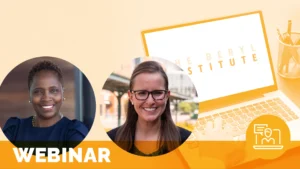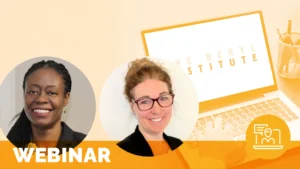Laying the Foundation for Patient Experience Success

On the Road with Faxton St. Luke’s Healthcare – October 2012
by Jason A. Wolf
Our October On the Road took me to the rich, warm fall colors of central New York and Faxton St. Luke’s Healthcare in Utica. The occasion was more than just a visit as it was also part of Faxton St. Luke’s annual Campaign for Quality (now in its 11th year), an event that brings together caregivers and the community on the critical issues facing healthcare and the delivery of care over a two day learning event. This event represents a powerful statement and represents an incredible stake in the ground on healthcare truly being a community issue. It suggests that care is not simply about the delivery, but it is about the interactions that occur at all touch points on the care continuum.
While Faxton St. Luke’s has seen the Campaign for Quality grow over the last decade, they are also the first to admit their patient experience efforts have truly only started to take shape. They are in the early stages of their journey and taking some of the critical first steps to ensure success. It is in this opening act of a patient experience effort where organizations sometimes face the biggest challenges and questions about their performance. It is in this phase that I would suggest organizations need to work the hardest to stay focused and ensure unwavering attention to the effort at hand. The story of Faxton St. Luke’s exemplifies the struggles and opportunities of many organizations, and their movement towards success provides us all with some valuable insights for continued action.
In looking at the emerging themes that comprise the Faxton St. Luke’s effort, I will highlight a few of the standout efforts that have been implemented to impact patient experience overall. These include focus on leadership and care delivery and an expanding acknowledgement of efforts that impact experience overall.
A Culture of Leadership Accountability
One of the major shifts in starting the organization on its path to a focus on experience overall was establishing a general level of accountability with leadership. Leadership of the various units and departments come together monthly to address the key areas of focus for the organization and share their results. The key to accountability is not just reporting on what you did but discussing how you performed to targets in areas such as quality, service and financial performance. Leaders are responsible not only for their individual data but also for addressing what they plan to do if they are off target. This is more than just leaders being accountable to their supervisors; it is leaders being accountable to their peers.
Creating an environment of aligned leadership is a central factor in creating a strong foundational culture on which an unparalleled experience can be built. As patient experience is the culmination of service, quality and safety is a driver for financial outcomes as well. Creating leadership alignment is one of the first critical steps in laying the cornerstone for more comprehensive action. Alignment then drives a shared accountability structure, which can become the basis for more purposeful actions. One of these commitments to action at Faxton St. Luke’s was the adoption of the Relationship Based Care model.
Implementing Relationship Based Care
For the last few years, Faxton St. Luke’s has been traveling the road to ensuring a truly comprehensive Relationship Based Care (RBC) model. This innovative look at care redesign is focused on creating the most impactful interaction between caregivers and patients and recognizes that the care experience is one that encompasses all roles. In essence, it takes the entire organization to ultimately provide care. This begs that organizations then look to find ways to create more integrative solutions.
The implementation of RBC, much like the application of leadership accountability, is designed to create an integrated approach to impacting care and experience (you can learn more here). At Faxton St. Luke’s the process was implemented to ensure that every unit and department, and as a results every member of staff, had input into the best means to deliver an unparalleled healthcare experience. RBC is driven from 6 core principles, including:
- Responsibility for relationship and decision making by ensuring a patient process is managed from admission to discharge
- Ensuring a continuity of care – meaning patients should build relationships with a certain core set of caregivers
- Effective use of communication
- Application of management
- Continuous process improvements
- Provide a healing environment of care
While these principles are basic, and in some part may be applied across many healthcare organizations, the lesson shared by the team at Faxton St. Luke’s is the intentionality with which you approach these ideas. As with any potential plan, its impact is only as great as its execution. This intention, partnered with consistency, become keys to success. While Faxton St. Luke’s has been on this journey for some time now, they were also quick to offer that you have to constantly stay focused on and engaged in these efforts.
As part of the RBC process, over 70 Unit Practice Councils (UPC) were established to bring the conversation of care as close to the front line as possible. These UPCs help identify and address issues and contribute to a broader system-wide conversation on ensuring the best overall experience possible. My visit also offered me another perspective on the exciting contribution of these UPCs. As part of the annual Campaign for Quality there was a patient experience poster contest in which each UPC shared how in their own way they contribute to patient experience. Over 70 posters were on display translating the actions of units, departments, practices and others and their impact on experience. These posters were a reminder that there is a great vision on what it takes to drive a positive patient experience. It also exemplified the extensive creativity staff has when considering this issue. One opportunity I saw from all these distinct contributions was for one broad statement of how all theses efforts combine to equate to the Faxton St. Luke’s experience. My On the Road and other travels have revealed this frequently, that organizations still struggle to put their arms around their comprehensive and integrated patient experience intention. The groundwork that the organization has laid down in these two processes will be of significant help in finalizing this important part of overall patient experience. The efforts at Faxton St. Luke’s shows the critical steps we need to consider in getting there.
Celebrating the Spirit of Caring
I was also privileged to participate in a powerful component of the culture at Faxton St. Luke’s. The organization celebrates the contributions of its staff through the Spirit of Caring awards. I suggest culture is at the core of patient experience efforts, and part of the shaping of culture is the way in which we reward and recognize the people who deliver or impact our ability to deliver care each day. The Spirit of Caring awards are a biannual process in which staff members are nominated for an outstanding contribution or interaction. Previous recognized staff members review nominations and 25 recipients are selected, once in the fall and once in the spring.
Spirit of Caring AwardThe process, as one staff member noted, “is like the prize patrol.” The recipient does not know they were selected. Instead they are surprised by their peers and other staff members who either appear or create a surprise event where they receive their award. The recognition includes a bouquet of balloons and a certificate and is also accompanied by a $500 check.
The one celebration I was able to attend was set up as a surprise meeting for one of the housekeepers. The meeting took place in the housekeeper’s break room in the hospital basement. Gathered there were a number of her peers, leadership team members and even a number of nurses from the recipient’s floor. As we waited for her to arrive for the surprise we learned she was called into action helping to clean out a critical care room that was needed immediately. This individual snapped into action knowing the “meeting” could wait while she focused on this critical part of her job and her contribution to the care experience. As we waited, one staff member said, “now you know why she is getting this!” The recipient, Donna, finally arrived to join the circle, still not knowing the gathering was for her. When one of Faxton St. Luke’s senior leaders, Tony Scibelli, started by mentioning we were gathered to acknowledge someone winning a Spirit of Caring award Donna even expressed her excitement for who that might be, until she then realized it was for her. Blushing she then said, “I was just doing my job!”
“Just Doing My Job”
That statement in itself may be the very essence at the foundation of the Faxton St. Luke’s efforts and I would suggest of many in a similar place on their patient experience journey. I strongly believe that patient experience is not an initiative, but rather it is about the ongoing efforts of every individual regardless of role. The efforts Faxton St. Luke’s have taken to lay a foundation of success are some of the most critical. From creating a sense of alignment and accountability, to engaging the voices of staff at all levels and every corner of the organization and in ensuring you not only have the right people, but also reinforce their contributions and efforts. These ideas are not secrets or even earth shattering in their discovery, instead they should be seen as foundational to what is needed overall.
The team at Faxton St. Luke’s acknowledged they are still new on their journey and working hard for the right results. Their commitment to one another and the community as exemplified not only in their powerful annual event but also in their daily actions and efforts bode well for the direction they are headed. Improving the patient experience is not something we achieve by simply snapping our fingers and expecting a result. It is about hard and focused work. The team at Faxton St. Luke’s seems to know this, have their heads down and their hearts open as they create the framework of experience for each other and the community they touch each and every day.
Related content
-
 Culture & Leadership | Innovation & Technology | Staff & Provider Engagement
Culture & Leadership | Innovation & Technology | Staff & Provider EngagementHuman-Centered Leader Rounding: Using Generational Insights and Personalization
Explore how healthcare leaders can design and adapt their rounding processes to cater to different patient and employee generations, combining generational data with a personalized approach that is specific to the individual. The discussion will focus on personalized care, communication preferences, and bridging generational gaps in expectations through a human-centric approach that prioritizes empathy and
Learn more -
 Culture & Leadership | Staff & Provider Engagement
Culture & Leadership | Staff & Provider EngagementUsing Gratitude to Elevate the Human Experience
In this webinar, the presenters will share how they developed a Gratitude Report as a part of Southcoast Health’s grateful patient program using positive patient feedback, comments, and stories to recognize caregivers that embody the values and service behaviors. The Gratitude Report is a list of employees’ names that have been mentioned by patients and
Learn more -
 Culture & Leadership | Infrastructure & Governance
Culture & Leadership | Infrastructure & GovernancePhoneside Manners: Strategies for Effective Communication
As the first point of contact that a patient has with your office, what transpires after the phone’s first ring can set the tone for the entire patient experience and impact patient satisfaction. Phoneside manners occur before a patient even walks through your front doors and can determine the outcome, mindset, and overall satisfaction of
Learn more
